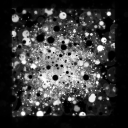 Originally Posted by DarkestDarkness

Your description of how your perception shifted towards your otherwise normal environments makes me think of what I learned and experienced through mindfulness, which is about appreciating and at the same time not making judgments on one's situation and surroundings. It sounds to me like there's a difference because mindfulness in that sense is about quietude of conscious mind, which I don't think is what your described experience was about. Both seem to be about subjective perception though. Perhaps this relates to the Buddhist practises that have a similar potential? I admit that mindfulness is not a practise I've kept at the fore of my mind, but it's been there nonetheless.
Ah, mindfulness. I don’t like to use the word myself since it’s rather imprecise, and I have the impression it’s been diffused to the point where it just sounds like it doesn’t mean anything much. I could call what I tried back then a mindfulness technique – but I am quite sure that corporations would not offer their employees programs on something if they were expecting results akin to what I experienced, and it would be kind of creepy if they did.
I’m not entirely sure I know what you mean by “subjective perception” – I would say that all perception is subjective – but I guess I might describe it as something like centered perception, or perception grounded in the present moment, or possibly embodied perception, in contrast with perception in which thought has taken precedence over the senses. Maybe that’s close to what you mean?
 Originally Posted by DarkestDarkness

It's interesting about Perls' book putting forward the notion that they were not intent on convincing readers intellectually or through reasoning in itself; in a way this is very close to something I have appreciated about reading Jung's works and more specifically reading one of the translated versions of the Red Book, because like you say the big-picture view is relevant but not necessarily entirely clear. Yet, to me there's at some point a fairly clear message that as a reader I should make my own judgment and not necessarily be so concerned with trying to make intellectual sense of what I am are reading. Much of Jung's experiences in said book had been otherwise private for quite some time and I think this may be of relevance because it meant that the pretext of "needing to prove" was not truly required when writing, since they were to some degree "just" his experiences.
Oh, you’ve read the Red Book! It had only just been published when I was really focused on getting to know Jung’s works, and I couldn’t afford it then, but it sounds fascinating. There’s a chapter in Jung’s (semi-)autobiography – it’s called something like “Confrontation with the Unconscious”, I think – which I understand deals with the period in his life the Red Book dates from, but as a more general overview.
In the case of this book, it isn’t that Perls doesn’t want to convince readers that his theory is correct, but that he wants to convince them on an experiential basis rather than an abstract, intellectual one that would be meaningless if it wasn’t grounded in experience. Not to mention useless, since most people wouldn’t be motivated to act on the basis of something that wasn’t meaningful to them on an experiential level. At best, the intellectual understanding can serve as an inspiration and a guide towards getting the right sorts of experiences, but only if you actually try to put it into action – and the book does offer a very thorough grounding. It’s just not where the main emphasis lies.
Since you’ve got me thinking about Jung now, I guess I can borrow an example out of his life to illustrate what I mean. Jung was a Christian because God was just part of how he experienced the world – experience colored by the culture he grew up in, but experience nonetheless. Jung’s father was a pastor, but his understanding of his religion never got beyond the intellectual level – it never became truly real for him, which according to Carl Jung was a major source of dissatisfaction in his life.
Or – to use another example, since only using a religious one might give the wrong impression – my grandfather has been a psychology professor and a school counselor, but he always seemed to keep his “psychologist self” completely compartmentalized from his family life (which I’ve been given to understand was outright dysfunctional in some ways) and has always been rather clueless as to how to actually communicate with people effectively. I don’t know whether he’s felt like there’s something important missing from his life since he would never mention it if there was, but he’s my only living grandparent at this point, and even though we theoretically have an interest in common, it still feels like we never have anything to talk about when we see each other, which is kind of sad.
(On that note: I don’t know whether mentally psychoanalyzing one’s relatives actually does them any good, but it is a good way of staying sane in a dysfunctional family.  ) )
I’m going to try to get back to the normal vs. healthy point later and address the rest of your post, but since it is sort of relevant here, I will say that I think one way in which what is normal in Western culture is unhealthy is the heavy emphasis placed on intellectual understanding – on being knowledgeable, on being right, on knowing the facts – when it’s at best the prelude to a deeper, experiential sort. And the dark side of this is that people who (reasonably) find the resulting shallowness and hypocrisy objectionable, or (reasonably) don’t see the point in acquiring knowledge that stays purely abstract, start thinking that ignorance must be a good thing, and the facts don’t matter at all (which is not reasonable). Sociology has its own separate toolkit from individual psychology, but I find there are a lot of social problems that come into focus when you consider that there are people in a culture that embody its shadow in various ways.
|
|
 28Likes
28Likes
 4
Post By LeaningKarst
4
Post By LeaningKarst
 2
Post By DarkestDarkness
2
Post By DarkestDarkness
 2
Post By LeaningKarst
2
Post By LeaningKarst
 2
Post By LeaningKarst
2
Post By LeaningKarst
 1
Post By DarkestDarkness
1
Post By DarkestDarkness
 2
Post By LeaningKarst
2
Post By LeaningKarst
 2
Post By LeaningKarst
2
Post By LeaningKarst
 1
Post By LeaningKarst
1
Post By LeaningKarst
 2
Post By LeaningKarst
2
Post By LeaningKarst
 2
Post By Summerlander
2
Post By Summerlander
 2
Post By Summerlander
2
Post By Summerlander
 1
Post By LeaningKarst
1
Post By LeaningKarst
 2
Post By LeaningKarst
2
Post By LeaningKarst
 1
Post By Summerlander
1
Post By Summerlander
 1
Post By LeaningKarst
1
Post By LeaningKarst
 1
Post By Summerlander
1
Post By Summerlander




 LinkBack URL
LinkBack URL About LinkBacks
About LinkBacks
 )
)





 Reply With Quote
Reply With Quote

Bookmarks